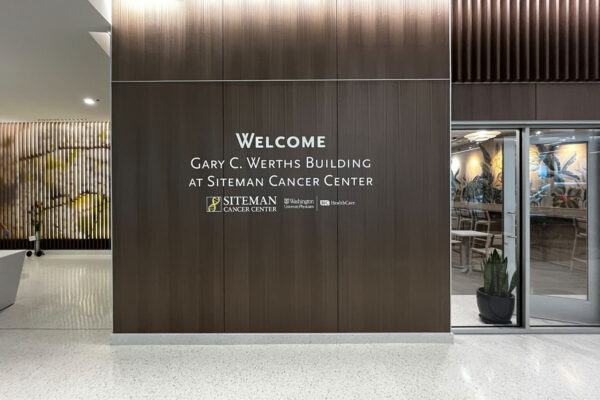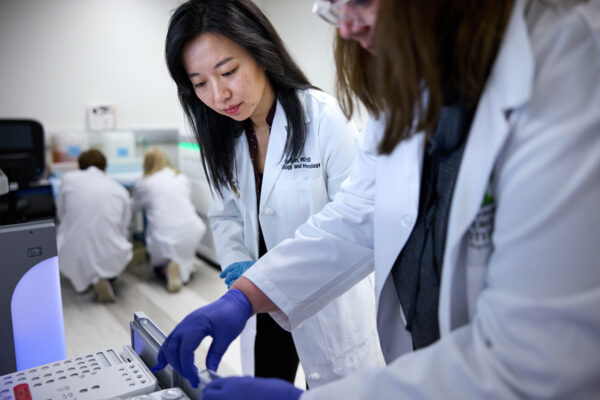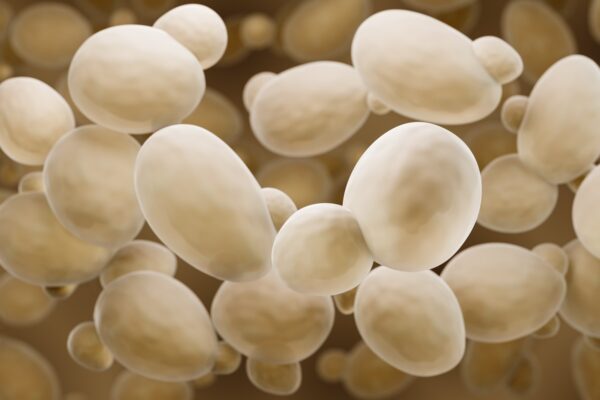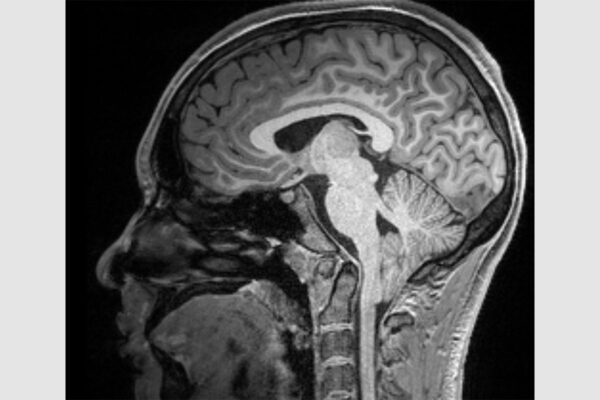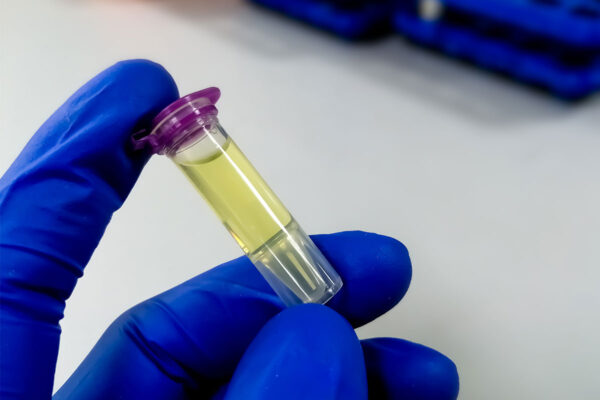Siteman Cancer Center’s new outpatient building named in honor of Gary C. Werths
Siteman Cancer Center’s new building for outpatient care will be named the Gary C. Werths Building. A transformative commitment by the late Werths and his husband, Richard Frimel, will support cancer research and medical student scholarships.
World leaders in ending blood cancer
The Siteman Blood Cancer Center delivers tomorrow’s treatments today.
Birthplace of precision medicine
At the forefront of individualized cancer care.
Mobilizing the best to start the fight earlier
Getting a head start on detection and treatment in adults under 50.
Grant supports resources for the brain imaging community
Adam Eggebrecht, an associate professor of radiology at WashU Medicine, received $4 million from the National Institutes of Health (NIH) to disseminate powerful cloud-based resources to the brain mapping community.
Probiotic delivers anticancer drug to the gut
Researchers at WashU Medicine engineered a yeast probiotic to deliver immunotherapy to the gut where it reduced gastrointestinal tumors in mice, offering a potentially novel strategy to target hard-to-reach gut cancers.
Study reveals COVID-19’s impact on global city mobility
COVID-19 reshaped mobility patterns worldwide, affecting walking, driving and public transit use, finds a new study published in The Lancet Public Health. The research, led by an international team including some Brown School researchers, analyzed data from nearly 300 cities to understand how urban transportation habits adapted during the pandemic.
The main events: How scenes from life shape consciousness, build memories
Brain science researchers at WashU are studying how the brain perceives, processes and remembers everyday events. Their goal is to create an intervention that could improve memory by helping people segment events.
Researchers define new subtypes of common brain disorder
Researchers at WashU have used AI tools to describe three sub-types of Chiari type-1, which will help guide clinicians to make the most effective treatment decisions for their patients.
New drug targets for Alzheimer’s identified from cerebrospinal fluid
Researchers at WashU Medicine have linked disease-related proteins and genes to identify specific cellular pathways responsible for Alzheimer’s genesis and progression.
Older Stories
